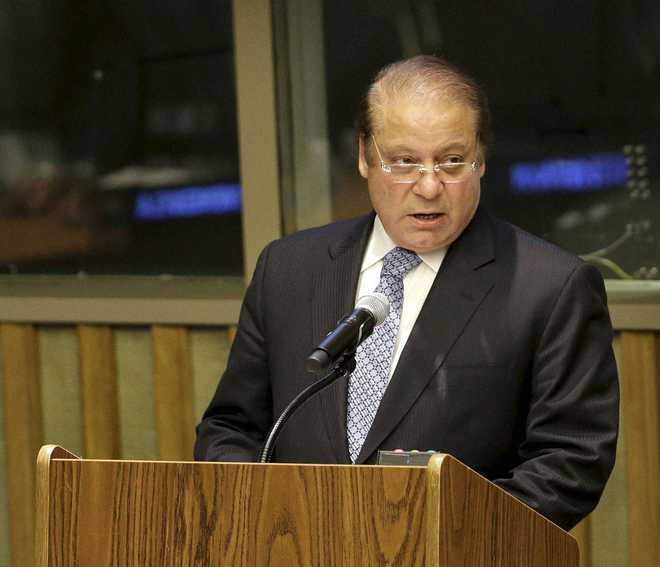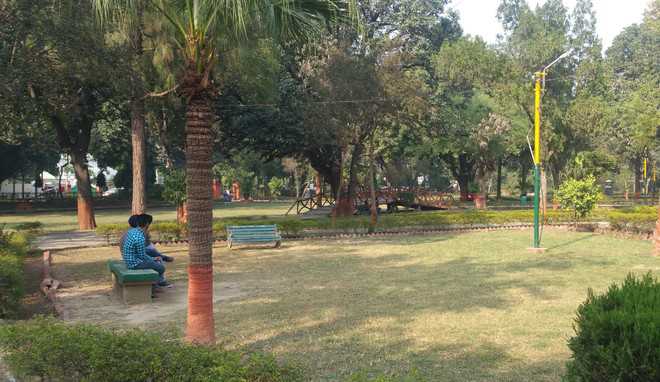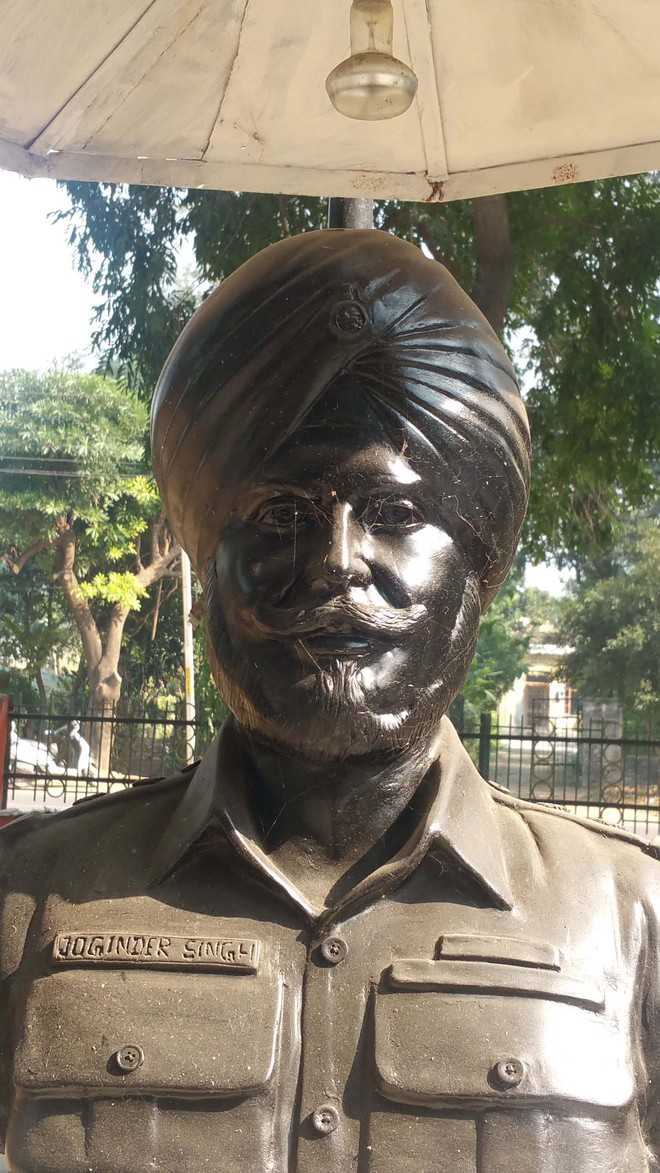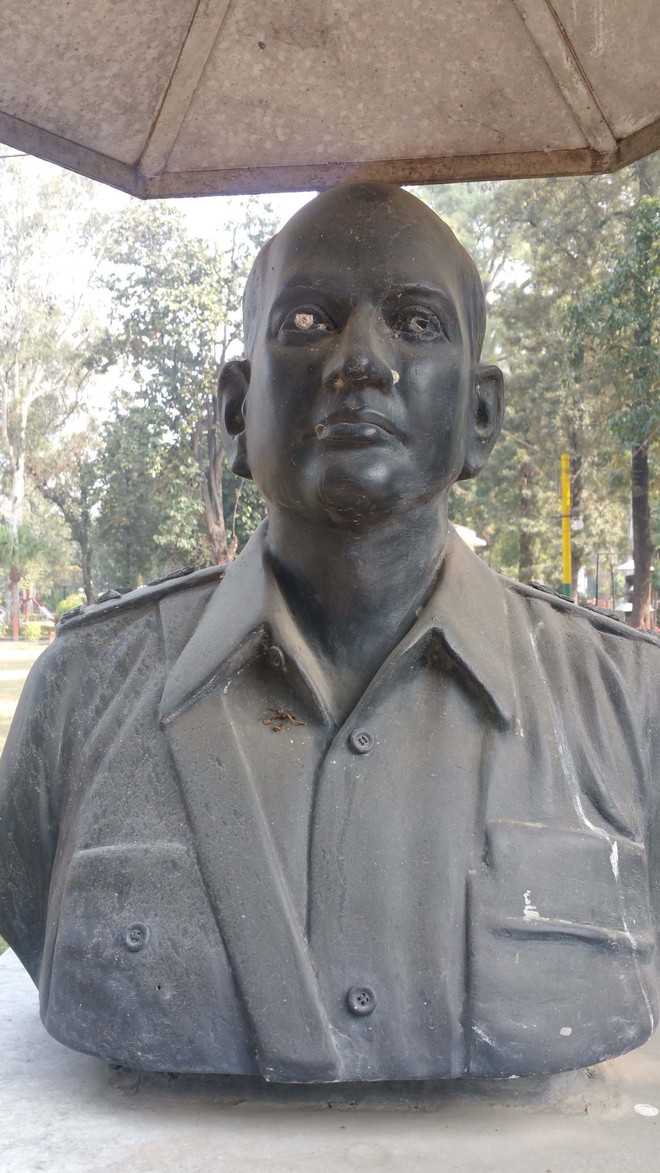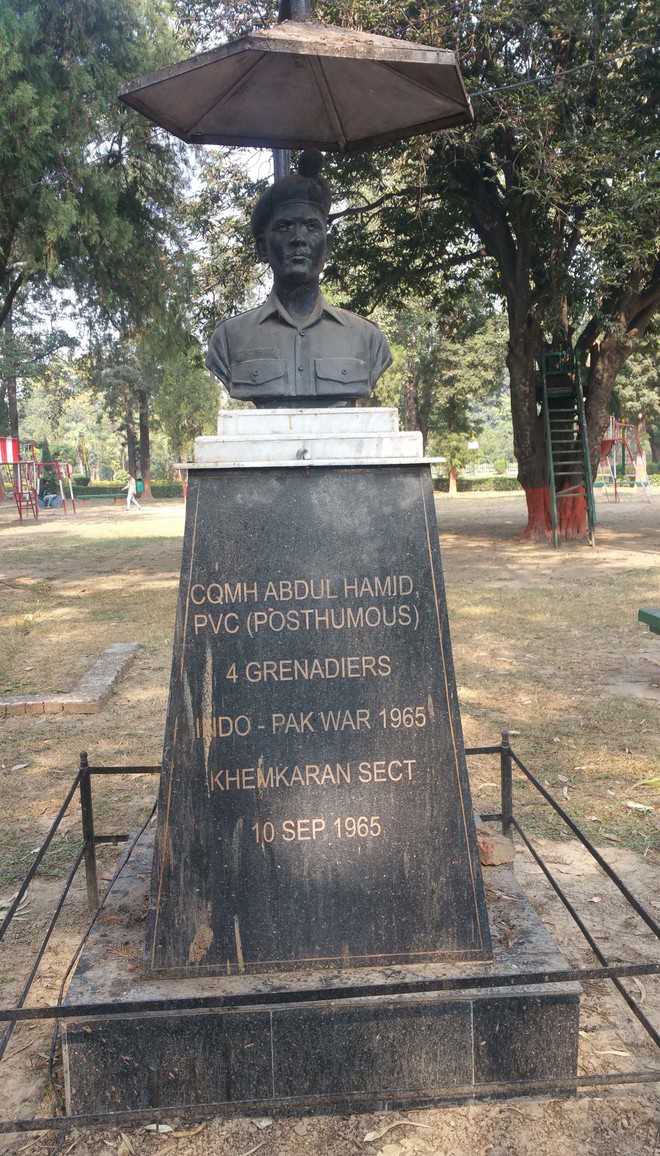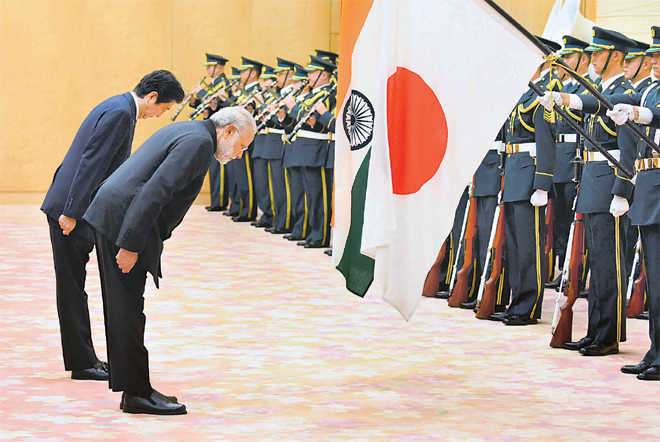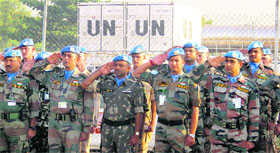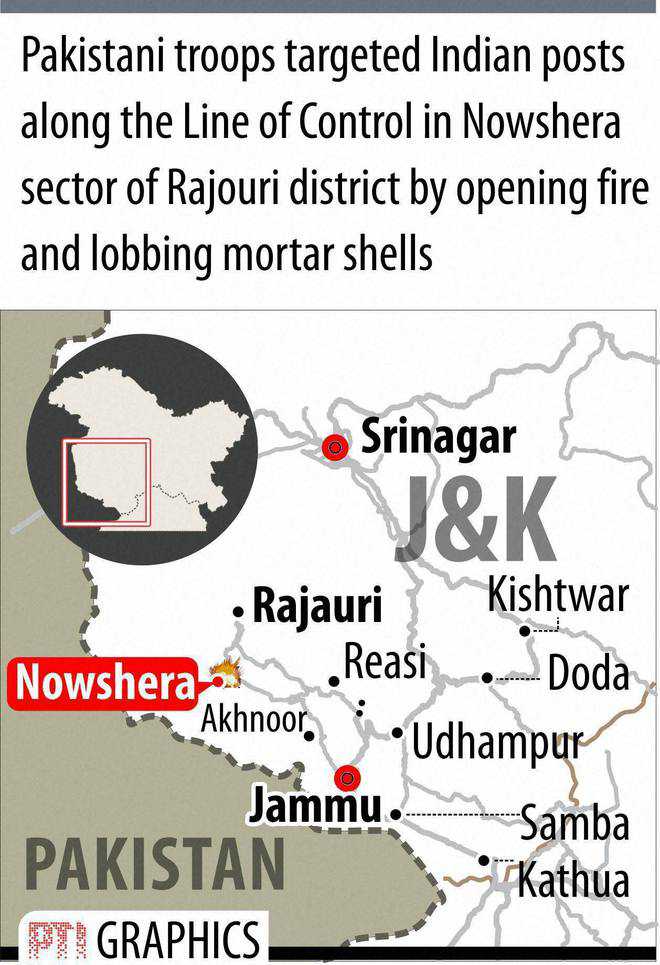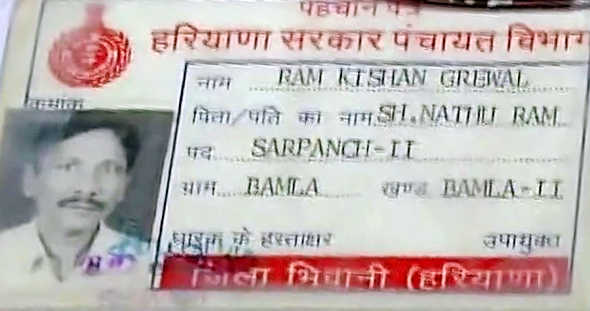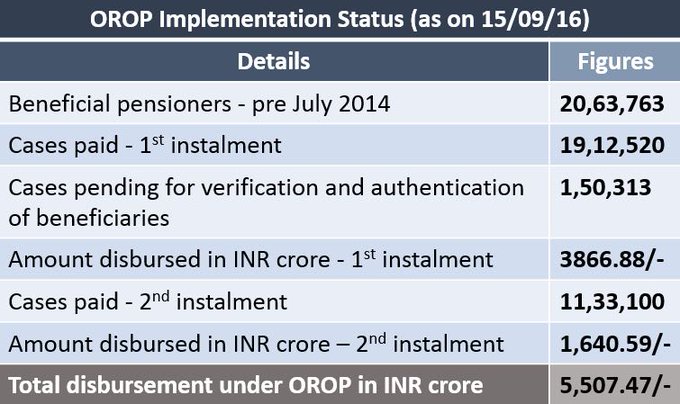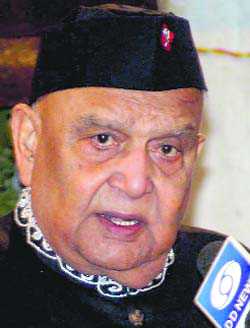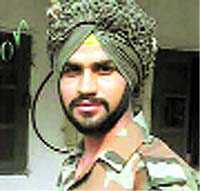 A file photo of Gursewak Singh
A file photo of Gursewak SinghPK Jaiswar & Gurbaxpuri
Tarn Taran, November 6
Warana village plunged into grief as it was told its valiant son Gursewak Singh, 24, had been killed in cross-border firing in Jammu and Kashmir. Betrothed to a girl of Nagoke village in July, he was to get married on February 13 next. An excited Gursewak had booked a marriage hall and selected his wedding attire while on a month’s leave recently.Gursewak’s mother Baljit Kaur looked numb with grief. His two sisters were inconsolable. But his father Balwinder Singh put up a brave front. “We are proud of our son’s supreme sacrifice in the line of duty,” he said stoically as he consoled mourners who thronged the house. (Follow The Tribune on Facebook; and Twitter @thetribunechd)When Gursewak, a matriculate from the nearby Government Secondary School Nauragdabad, joined the Army on March 25, 2013, there were celebrations at home. His recruitment meant regular income for the family that had struggled to make both ends meet. Balwinder owns half an acre land. He and his elder son Jasbir work as farm labourers. Today, the family is devastated. With Gursewak has died hope too. “It’s a nightmare,” murmured Jasbir, fighting back tears. “My brother had made all arrangements for the wedding. We were all so happy,” he kept repeating to himself. The cremation will take place tomorrow.
Tarn Taran soldier among 2 dead as Pak troops open fire in Poonch
Unprovoked ceasefire violations in Poonch sector continues. Two of our brave soldiers have been martyred and two others are injured. Indian troops are responding befittingly
JAMMU/TARN TARAN: Two army jawans were killed and four others, including a Border Security Force (BSF) officer and a woman, were injured as Pakistan army opened unprovoked firing at Indian posts and forward villages along the Line of Control (LoC) in Poonch district on the intervening night of November 5 and 6.
 HT PHOTOThe grieving family of sepoy Gursewak Singh (inset), who was killed in cross-border firing, at Warana village in Tarn Taran on Sunday.
HT PHOTOThe grieving family of sepoy Gursewak Singh (inset), who was killed in cross-border firing, at Warana village in Tarn Taran on Sunday.
Pakistan army opened fire in a bid to facilitate two infiltration bids, killing a soldier, an army officer said, adding that the attempts to push in infiltrators have been foiled.
“Vigilant troops observed suspicious movement and challenged the infiltrators in Krishna Ghati sector on Saturday night. In the ensuring gunfight, sepoy Gursewak Singh (23) of the 22 Sikh Regiment suffered gunshot wounds and succumbed to his injuries while being evacuated,” said the officer.
Gursewak was a resident of Warana village in Punjab’s Tarn Taran district and was to get married in February next year. He is survived by his father Balwinder Singh, mother Baljit Kaur and elder brother Jasbir Singh.
Gursewak’s mortal remains will be airlifted to Amritsar and last rites will be performed at his native village with full state honours on Monday.
Another army jawan, identified as Naik Tukpare Rajendra Narayan of Maharashtra, was killed as Pakistan army resorted to indiscriminate shelling in LT COL MANISH MEHTA, defence spokesperson the Poonch sector. BSF subinspector Nitin Kumar, two jawans and a woman, Tasleema Akhter, 29, of Salotri village in Poonch, were injured in the firing at Saujiyan sector. “Kumar sustained a splinter injury was airlifted to the army hospital. His condition is stated to be stable,” said a BSF officer.
Intelligence sources say while Pakistan targeted Victor post of the Indian Army, their Kopra post across the LoC caught fire in a retaliatory fire by the Indian troops. Pakistan has also suffered some casualties, though the exact number could not be known, said sources.
Defence spokesperson Lt Col Manish Mehta said: “Unprovoked ceasefire violations in Poonch sector continues. Two of our brave soldiers have been martyred and two others are injured. Indian troops are responding befittingly and have caused heavy damage to Pakistan Army posts.”
Sunday’s ceasefire violation came after a lull of four days. Pakistan has violated ceasefire 100 times along the LoC in Jammu and Kashmir after India’s surgical strikes on September 28
